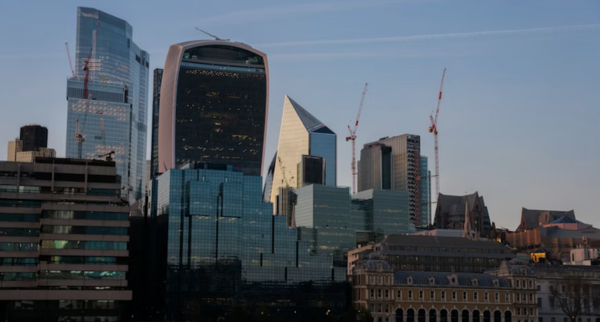Why Global Investors Are Eyeing London Real Estate Again
For decades, London has held a reputation as one of the world’s most stable and desirable real estate markets. From prime office towers in the City to the historic townhouses of Kensington and Chelsea, London has consistently drawn capital from every corner of the globe. Yet the last several years were marked by turbulence: Brexit uncertainty, the pandemic’s disruption of urban markets, and shifting currency dynamics led some investors to pause or redirect their focus. Now, however, global capital is flowing back into London real estate with renewed confidence. A combination of economic resilience, attractive pricing, currency advantages, and long-term strategic fundamentals has re-established the city as a compelling target for international investors.
1. A Market Re-Entering Stability
One of the strongest reasons investors are revisiting London is the return to political and economic stability. After years of uncertainty surrounding Brexit negotiations, the business environment is clearer, regulatory frameworks are more predictable, and the city’s position as a global financial hub remains intact. Despite macroeconomic challenges such as inflation and fluctuating interest rates, London has demonstrated resilience that many markets lack. Its diversified economy—driven by finance, technology, life sciences, and creative industries—continues to attract multinational companies and top-tier talent.
For investors, stability translates into confidence. Commercial leases tend to be long, vacancy rates in prime areas remain low, and rental demand is consistently buoyed by London’s status as a global destination for professionals and students. As markets like New York, Hong Kong, and European capitals face their own structural and political challenges, London’s relative steadiness is increasingly appealing.
2. Attractive Pricing After Market Corrections
Price corrections in both residential and commercial sectors have created what many investors view as a buying window. While London real estate has never been “cheap,” average prices in several prime districts have dropped from their pre-Brexit and pre-pandemic peaks. For long-term investors, these softer valuations represent an opportunity to buy high-quality assets at a discount compared to historical norms.
Commercial real estate, particularly offices, has undergone a significant repricing. Hybrid work has reshaped demand, impacting older or outdated office buildings. Yet modern, energy-efficient, and well-located offices continue to perform well, especially those designed to align with ESG requirements. Investors with capital and a long-term outlook are taking advantage of the dip, acquiring assets that are expected to rebound as companies recalibrate their workspace needs.
3. Currency Advantages for International Buyers
Currency dynamics have played a major role in London’s renewed attractiveness. Periods of a weaker British pound have allowed investors from the U.S., the Middle East, and Asia to purchase property at a relative discount. For dollar-denominated investors in particular, London real estate has effectively been “on sale,” offering stronger purchasing power and improving long-term yield prospects.
Even as the pound fluctuates, its volatility often benefits international buyers who view these movements as strategic entry points rather than risks. In comparison with other major world currencies, the pound’s predictability and the strength of the UK’s financial institutions offer reassurance.
4. London’s Global Appeal Remains Unmatched
Beyond economics, London’s global appeal is unique. It is a cultural capital, a world leader in education, and a hub for global finance and innovation. Its international connectivity—both in terms of travel and business networks—remains among the best in the world. This makes London particularly attractive for investors seeking assets in cities with long-term staying power.
Moreover, the city’s strong rule of law, transparent property rights, and well-established real estate market infrastructure set it apart from many other global destinations. For institutional investors, sovereign wealth funds, family offices, and high-net-worth individuals, these factors reduce risk and support long-term value preservation.
5. A Wave of Regeneration and Infrastructure Development
London continues to reshape its urban landscape through major regeneration projects and infrastructure upgrades. Areas like Battersea, Nine Elms, King’s Cross, and parts of East London have undergone dramatic redevelopment, attracting global tenants, tech giants, universities, and new residents. These projects have not only enhanced London’s livability but also created new investment corridors with strong capital appreciation prospects.
In addition, London’s ongoing commitment to sustainability—through energy-efficient buildings, green transport initiatives, and climate-resilience planning—aligns with the priorities of global investors increasingly focused on environmentally responsible assets.
6. A Long-Term Bet on One of the World’s Most Resilient Property Markets
Despite periodic downturns, London has historically shown exceptional long-term appreciation. The market’s ability to absorb shocks, adapt to global trends, and sustain demand across cycles reinforces its reputation as a secure place to park capital.
For many global investors, the decision to re-enter London isn’t solely about short-term gains—it’s about securing a foothold in a world-class city whose relevance is unlikely to fade.
As global capital reawakens to London’s strengths, the city is once again proving why it remains one of the most sought-after real estate markets on the planet. Whether driven by attractive pricing, currency advantages, economic resilience, or long-term strategic appeal, the message is clear: investors around the world are looking to London—and they’re ready to invest again.
Published: 27th November 2025
For more article like this please follow our social media Twitter, Linkedin & Instagram
Also Read:
Fintech Boom: Top Finance Startups Shaping the UK Market
Study: AI may cut 3m low-skill UK jobs by 2035
UK Called the “Most Expensive Place” to Build Nuclear Power























